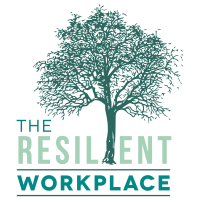Organisational Resilience
What is Organisational Resilience and how can you achieve it?
Organisational Resilience is key to helping businesses survive and prosper, reaching beyond risk management to a more comprehensive approach to business success. A resilient organisation is one that is not only able to survive long term, but one that can make continuous progress.
Mastering Organisational Resilience is not a one-time goal, but a continual pursuit to achieve business success, which can be accomplished primarily through combining progressive and defensive ways of thinking when identifying potential challenges.
In brief, Organisational Resilience refers to the ability of an organisation to prepare for, anticipate, respond to, and adapt to disruptions or incremental changes. In today’s interconnected world, Organisational Resilience is a strategic imperative, requiring the adoption of practices and habits that can deliver improvement through building competence and capability across all aspects of an organisation. Essentially, Organisational Resilience provides a framework for businesses to overcome any challenges faced and make the most of opportunities that present themselves.
Research by the British Standards Institution (BSI) has shown that, in more recent years, turbulent economic and political conditions appear to have weakened the confidence of business leaders in their ability to identify potential threats and risks. Further to this, research has shown an overall decline in the confidence of organisations to predict future market conditions. External market conditions are weakening overall resilience, causing firms to focus primarily on their immediate financial goals, with less focus on long-term planning.
The solution to this stagnation is improved Organisational Resilience. The elements that shape Organisational Resilience can be split into four categories: leadership, which includes resource management, financial management and vision and purpose; people, including culture and awareness and training; process, such as business continuity and supplier management; and product, which includes adaptive capacity, horizon scanning and innovation.
According to David Denyer, Professor of Leadership and Organisational Change at Cranfield University and a leading expert in the study of Organisational Resilience, organisations need controls, mindful action, responsiveness, efficiency, optimisation and innovation in order to be resilient. In other words, organisations need to be progressive in production, opportunities and achieving results, but also defensive in terms of prevention, understanding threats and protecting results. Denyer stresses the need to balance consistency with flexibility.
In his work, Denyer has identified four ways of thinking about Organisational Resilience. These approaches can be implemented in order to help businesses make continual progress when the perfect balance is struck between them.
The first approach is preventative control, or defensive consistency, which refers to the importance of safeguards and measures that protect systems from potential threats. This can include business continuity plans, training for emergency responses and conformity to industry standards.
The second approach is mindful action (or defensive flexibility), referring to preparations for challenges, which requires the capacity to investigate, learn and act when such challenges arise. Mindful action stresses the importance of individual training and a feeling of competence among employees.
The third approach that Denyer identifies is performance optimisation, or progressive consistency. Performance optimisation involves improving ways of doing things, delivering goals and meeting the needs of the public, media, regulators and government. Optimisation can be achieved through process enhancement, which is done by identifying operational improvements across products and services. Leadership is a critical aspect of optimisation.
Finally, Denyer identifies adaptive innovation, or progressive flexibility, as a fourth approach. This refers to the importance of creative problem-solving in gaining a competitive advantage, which requires a diversity of viewpoints, experimentation, new discoveries and invention.
If organisations are to be truly resilient, these four approaches need to be effectively managed. The balance between them depends on the nature of the organisation and the industry it is in, but all four are necessary to achieve Organisational Resilience.
So far, there has been a preoccupation with defensive resilience behaviours and less focus on progressive measures that will help to adapt to opportunity and deal with the complex issues that modern businesses face. Resilience is about surviving and thriving, regardless of the challenge, and so, in order for organisations to best respond to and adapt to incremental change, there must be more focus on progressive thinking. It is this balance of approaches that will enable businesses to make the most of their opportunities, whatever adversities they face.


